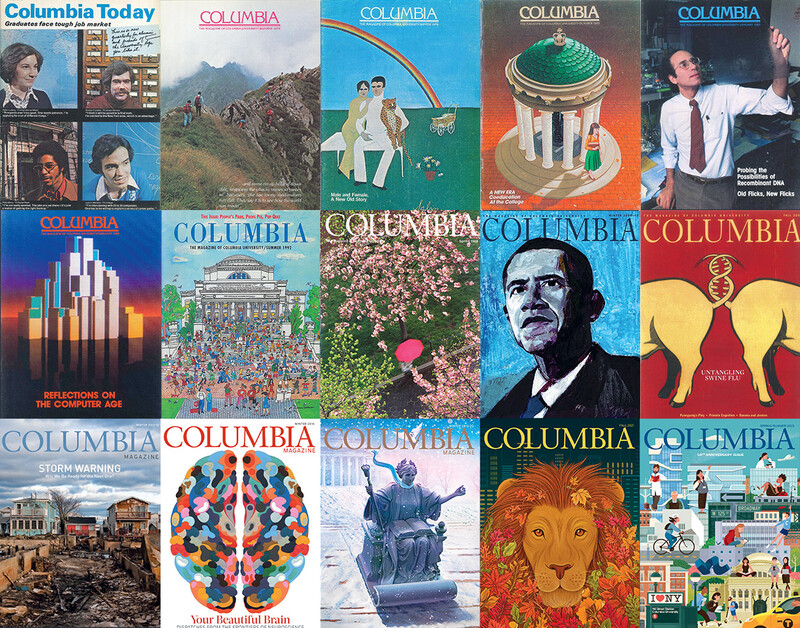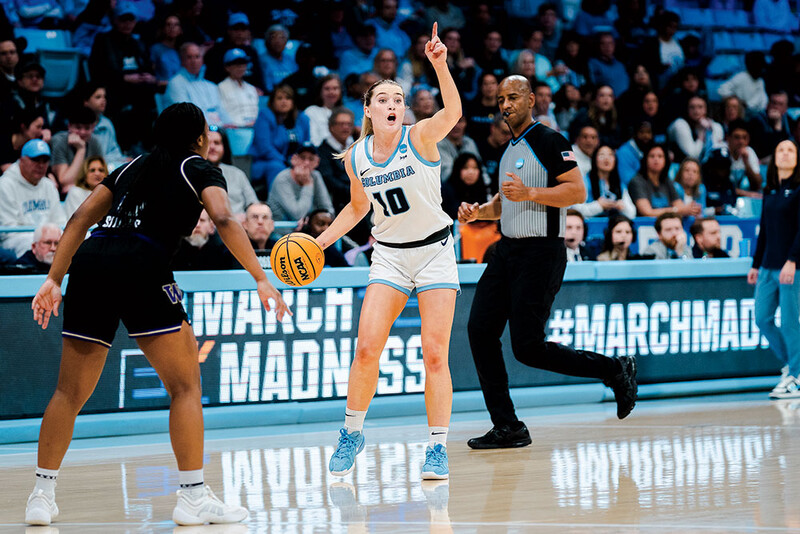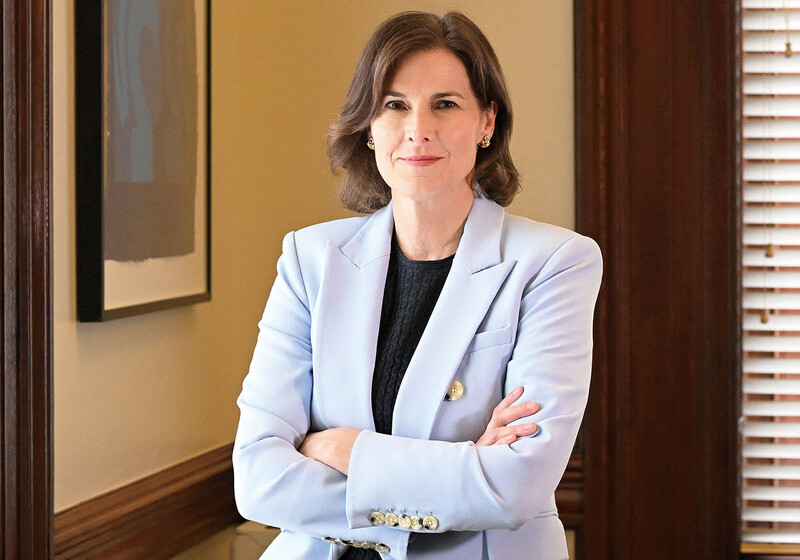Two Columbians—a professor and an alumnus—found themselves side by side in Baghdad this summer, leading the effort to preserve Iraq’s cultural heritage.
Zainab Bahrani, the Edith Porada Associate Professor of Near Eastern Art and Archaeology at Columbia, has been working closely with Marine Colonel Matthew Bogdanos ’83LAW ’84GSAS, who is heading the U.S. military investigation to recover cultural property, reconstruct museums, and protect archaeological sites damaged by the war in Iraq.
Bogdanos, who was lead prosecutor for the Manhattan trial of Sean “P. Diddy” Combs, is now head of the 14-member team charged with finding the lost pieces from the Iraq National Museum in Baghdad.
Bahrani is working with a joint task force of UNESCO and the British Museum, which has been sending international experts to Iraq to assist in the recovery efforts. “Although I left Iraq as a young girl, I feel a personal as well as professional obligation to participate in the recovery and conservation of Iraq’s treasures,” says Bahrani, who was born in Baghdad.
A specialist in the art and architecture of the ancient Near East, Bahrani has written extensively on Mesopotamian art. Last May authorities consulted Bahrani, who also serves on the American Coordinating Committee for Iraqi Cultural Heritage, to authenticate 4,000-year-old Mesopotamian seals that an American man bought on the street in Iraq for $200 and tried to smuggle through JFK International Airport.
Bahrani estimates that more than 10,000 objects are still missing from the Iraq National Museum alone. “What has happened to the cultural heritage of Iraq, its museum, libraries, and archaeological sites, is one of the worst cultural disasters in modern history,” she says.
Still, Bahrani remains hopeful and says the recovery work is progressing slowly. “One can only describe what has been accomplished so far by Colonel Bogdanos and the staff as Herculean,” she says. “Yet a great deal remains to be done.”
A no-questions-asked program brought almost 3,000 items back to the museum, according to officials. “The Iraqi people have been wonderful,” said Bogdanos, quoted in a UK Guardian article. “My response to someone who comes up with an item is not to ask questions, but to say: ‘Thank you. I appreciate your sense of honor. Let’s have a cup of tea.’”


